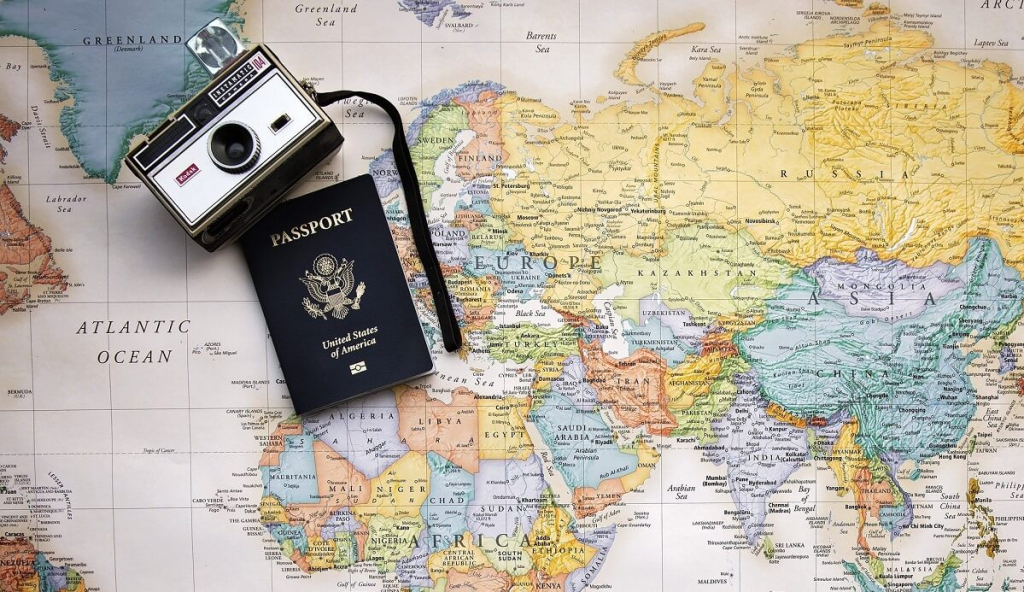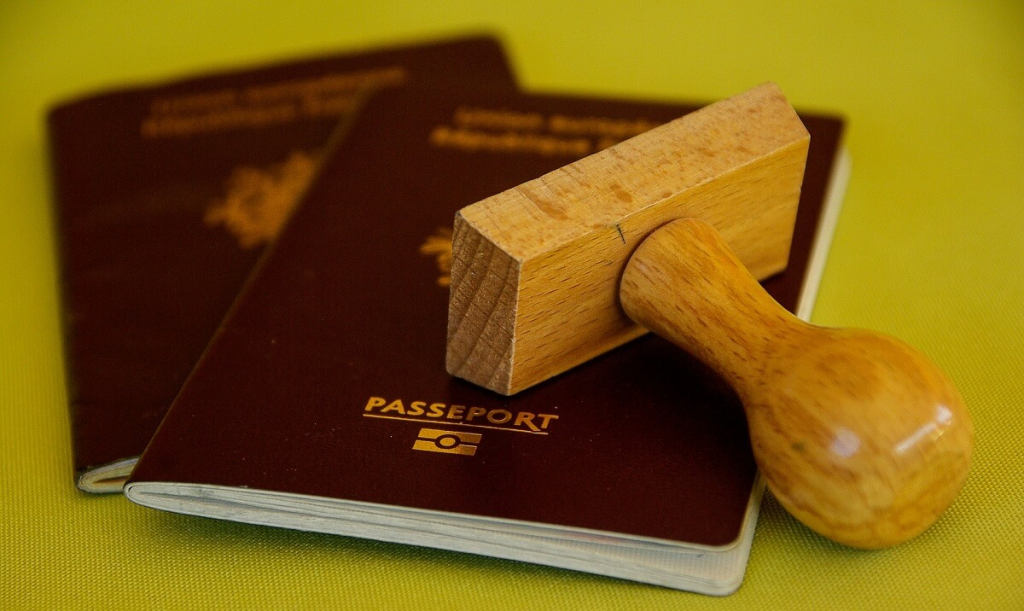Last updated on 8 January 2025
EU and EEC citizens don’t need a visa to enter Bulgaria but many others do. Learn about the conditions of entry and visa types.
Who Don’t Need A Visa To Bulgaria
EU/EEC citizens
Citizens of the EU, EEC (Norway, Iceland and Lichtenstein) and Switzerland don’t need any type of visa for entering and staying in Bulgaria for any period of time. Bulgaria is now a full member of the Schengen Area.

Others
A short-stay visa issued by one of the Schengen States also entitles its holder to enter and reside in Bulgaria for a period of no more than 90 days in any 180-day period from the date of the first entry, without needing to have a Bulgarian short-stay visa. The same applies to valid visas and residence permits issued by Romania, Cyprus or Croatia.
Bulgaria is applying the European Union’s Common Visa Policy. Citizens of the following non-EU and non-EEC countries can enter Bulgaria without a visa (with some exceptions) for no more than 90 days in any 180-day period: Albania *, Andorra, Antigua and Barbuda, Argentina, Australia, Bahamas, Barbados, Bosnia and Herzegovina *, Brazil, Brunei, Canada, Chile, Colombia, Costa Rica, Dominica , El Salvador, Georgia *, Grenada , Guatemala, Holy See (Vatican), Honduras, Israel, Japan, Kiribati , Malaysia, Marshall Islands , Mauritius, Mexico, Micronesia , Moldova *, Monaco, Montenegro *, Nauru , New Zealand, Nicaragua, North Macedonia *, Palau , Panama, Paraguay, Peru , Saint Kitts and Nevis, Saint Lucia , Saint Vincent and the Grenadines , Samoa, San Marino, Serbia , Seychelles, Singapore, South Korea, Taiwan*, Timor-Leste , Tonga , Trinidad and Tobago, Tuvalu , Ukraine *, United Arab Emirates , United States, Uruguay, Vanuatu , Venezuela.
Territories: Hong Kong SAR, Macao SAR, British nationals (Overseas), British overseas territories citizens (BOTC), British overseas citizens (BOC), British protected persons (BPP), British subjects (BS)
*Only holders of biometric passports are exempt from the visa obligation. Holders of non-biometric passports still require a visa in which case the visa facilitation agreements apply.
** Only holders of biometric passports are exempt from the visa obligation. Holders of non-biometric passports and holders of passports issued by the Serbian Coordination Directorate (in Serbian: Koordinaciona uprava) still require a visa in which case the visa facilitation agreements apply.
*** Only passports issued by Taiwan which include an identity card number.

Who Do Need A Visa To Bulgaria
Currently Bulgaria issues national visas only. These visas do not give their holders the right to enter the Schengen area.
The citizens of the following countries need a visa to enter Bulgaria:
Afghanistan, Algeria, Angola, Armenia, Azerbaijan, Bahrain, Bangladesh, Belarus, Belize, Benin, Bhutan, Bolivia, Botswana, Burkina Faso, Burundi, Cambodia, Cameroon, Cape Verde, Central African Republic, Chad, China, Comoros, Congo, Côte d’Ivoire, Cuba, Democratic Republic of the Congo, Djibouti, Dominican Republic, Ecuador, Egypt, Equatorial Guinea, Eritrea, Eswatini (formerly Swaziland), Ethiopia, Fiji, Gabon, Ghana, Guinea, Guinea-Bissau, Guyana, Haiti, India, Indonesia, Iran, Iraq, Jamaica, Jordan, Kazakhstan, Kenya, Kuwait, Kyrgyzstan, Laos, Lebanon, Lesotho, Liberia, Libya, Madagascar, Malawi, Maldives, Mali, Mauritania, Mongolia, Morocco, Mozambique, Myanmar/Burma, Namibia, Nepal, Niger, Nigeria, North Korea, Oman, Pakistan, Papua New Guinea, Philippines, Qatar, Russia, Rwanda, Sao Tomé and Príncipe, Saudi Arabia, Senegal, Sierra Leone, Somalia, South Africa, South Sudan, Sri Lanka, Sudan, Suriname, Syria, Tajikistan, Tanzania, Thailand, The Gambia, Togo, Tunisia, Turkey*, Turkmenistan, Uganda, Uzbekistan, Vietnam, Yemen, Zambia, Zimbabwe
*Citizens of the Republic of Turkey holding valid regular passports and visas issued by the Member States of the Convention implementing the Schengen Agreement or of the European Union, or residence permits issued by the Member States of the Convention implementing the Schengen Agreement or of the European Union, Switzerland or Liechtenstein, may enter the territory of the Republic of Bulgaria and transit there through without visas for up to 5 days, where their transit is from the Republic of Turkey to the state which issued the visa or residence permit, as well as in case of transit from such state to the Republic of Turkey. Nationals of Turkey, holders of special passports are not visa exempt.
Visa Types
Visa Type A (for airport transit)
The airport transit visa entitles the foreigner to cross or to stay in the international transit zone of the airport in the case of a transit landing or of changing flights for the purpose of continuing travel to another state. A foreigner staying in a transit room of international flights is deemed not admitted to the territory of the Republic of Bulgaria and is not entitled to leave the transit room.
The airport transit visa may be single, double or, as an exception – multiple, with a validity term of three months from the date of its issue.
Visa Type C (short-stay or transit visa)
A short-stay visa for the purpose of a planned stay is issued to a foreigner who enters the country once, twice or multiple times for a total term of stay up to 90 days within 6 months from the date of the first entry. The other purpose of this visa is for transit, and is issued to a foreigner who wishes to transit through the territory of Bulgaria en route to another state, for which he/she has a visa, if required. The overall duration of stay in Bulgaria with a transit visa may not exceed 90 days within 6 months from the date of the first entry.
The transit visa entitles the foreigner to one, two, or as an exception – three transit passages each for a term of 2 days and with a validity of up to 12 months.
Visa Type D (long-stay)
A long-stay visa is issued to a foreigner who wishes to settle for a long term or permanently in the Republic of Bulgaria. This visa gives the right to stay for up to 180 days in Bulgaria. A long-stay visa with a validity term of up to one year and a right to stay up to 360 days may be issued to foreigners who perform science research or are students under tuition programs for up to one year, post-graduate or trainee students, foreigners sent on assignment by a foreign employer for the performance of specific tasks, related to control and coordination of a tourist services contract as well as foreigners sent on assignment by a foreign employer for implementing investments under the Investment Promotion Act. There is an obligatory personal interview when applying for a type “D” visa.
Visa Issuing
A foreign citizen wishing to apply for a Bulgarian visa shall hold a regular travel document that meets the following requirements:
• its validity expires at least 3 months after the intended date of departure from the territory of the Republic of Bulgaria or in case of multiple visits – after the last scheduled date of departure from the territory of the Republic of Bulgaria;
• contains at least 2 blank pages for visa purposes;
• has been issued within the last 10 years.
Visa applications forms must be submitted not earlier than 3 months before the date of the intended travel, personally or through an authorized agent, with the exception of humanitarian cases.
Documents to be submitted with the visa application:
- A photocopy of the first page of the foreign travel document
- A photocopy of the last Bulgarian and Schengen visas or visas for the UK and the US, if any
- A full color photograph 3,5 cm х 4,5 cm against a light-colored background. This has to be a full-face photo with a clear, large enough face which takes up 70-80% of the photo. The following is ineligible: photos with dark glasses, non-professional photos or cut out of amateur photos.
- A medical insurance valid for the EU member states for the whole period of the trip, covering all costs for repatriation and for urgent medical care and emergency hospital treatment for the period of the stay indicated in the visa. The insurance amount cannot be less than 30,000 euros.
- Tickets (original and copy) or ticket booking conformation
- Copy of the technical passport of the car of the trip
- For under-aged children traveling without their parents or trustees, the following documents shall be submitted:
• a copy of the birth certificate
• original and photocopy of a power of attorney notary certified by both parents/ trustees or by one parent trustee that they agree their child to travel unaccompanied by them
The following persons are exempt from presenting proof for subsistence, accommodation and transportation:
- Members of the families or the households of European Union, European Economic Area and the Swiss Confederation citizens;
- Persons applying for a visa for a long stay in view of gathering their families, in relation to a refugee status acquired or asylum in the Republic of Bulgaria – pursuant to a written decision of the State Agency for Refugees with the Council of Ministers
- Holders of service and diplomatic passports
The following persons are exempt from presenting an insurance policy:
- Members of the families or the households of European Union, European Economic Area and the Swiss Confederation citizens
- Holders of service and diplomatic passports
- Seamen who meet the criteria of Convention №108 of the International Labour Organization when submitting applications for short-stay visas with the purpose of transit
- Persons who can be deemed to be insured or can cover expenses in unforeseen circumstances due to their social or service status.
The following persons are exempt from fees for visa application processing
- Foreign citizens who as of the date of the visa application are under 6 years
- Members of Bulgarian and EU citizens’ families
Where To Apply
Visa applications have to be submitted at the Bulgarian embassy or consulate in the country where the applicant is traveling from. In addition, the Bulgarian Consular Services are accepting visa application forms through the so-called Visa Application Centers (Outsourcing Centers) in the following countries and cities:
Russia: Moscow, Sankt Petersburg, Yekaterinburg, Novosibirsk, Kazan, Samara, Nizhny Novgorod, Krasnodar, Krasnoyarsk, Rostov-on-Don, Vladivostok, Khabarovsk, Irkutsk, Ufa, Sochi, Kaliningrad
Ukraine: Kiev, Odessa, Lviv, Lutsk, Ivano-Frankivsk, Donetsk, Kharkiv, Simferopol
United Arab Emirates: Dubai, Abu Dhabi
Quatar: Doha
Oman: Masqat
Bahrain: Manama
Saudi Arabia: Riyadh, Jeddah
Turkey: Ankara, Istanbul, Edirne, Bursa, Gaziantep, Adana, Izmir
Kazakhstan: Nur-Sultan (formerly Astana), Almaty
For more information, visit https://www.mfa.bg/en/ (the official website of the Ministry of Foreign Affairs).